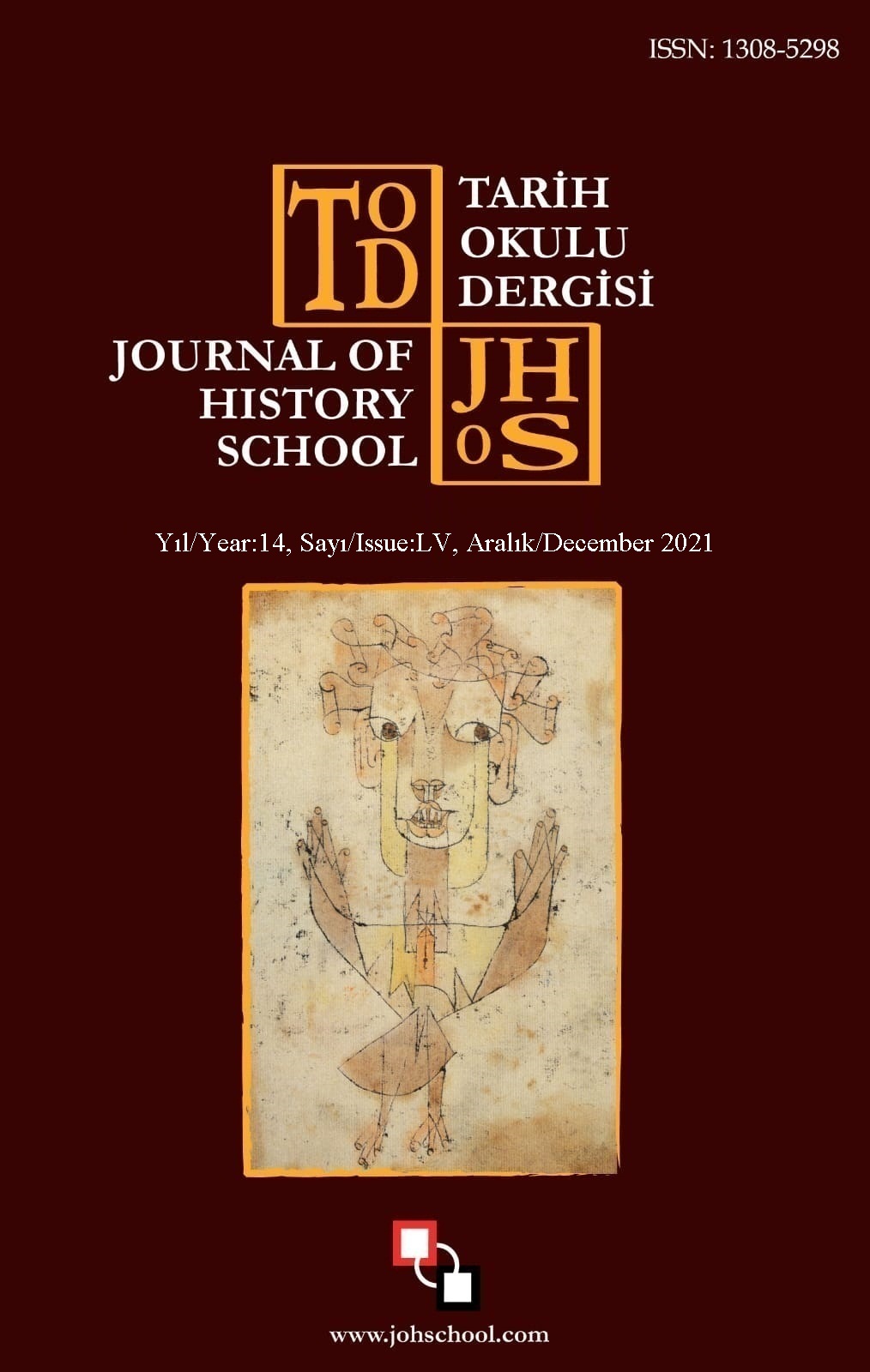MAHMÛD EL-LÜBÂBÎDÎ (ö. ?) İLE MUHAMMED MUHAMMED EL-MEDENÎ (ö. 1968) ARASINDA GEÇEN BİR TARTIŞMA: MÜSLÜMAN TOPLUMUN (ÜMMETİN) NESİH ETME YETKİSİ
Author :
Abstract
İlâhî dinler, inanç, ibadet ve ahlaka dair birçok hükümleriyle inanlara dünya yaşantısını ahrete uygun maddî ve manevî bir düzene sokmayı teklif etmiştir. Sonra gelen bir şeriat, bir önceki şeriatın yürürlük süresinin bütün yönleriyle tamamen kaldırabilmiştir. Vahiy sürecinde şer’î bir hükmün yürürlük süresinin sona erdiği, bir başka şer’î delil tarafından açıklanabilmiştir. Ama dinin ahiret hesabına uygun bir dünya yaşantısı geçirme prensibi hiç değişmemiştir. Mükellef, dünya endeksli bir hayır beklentisinden daha çok, son kertede ahret merkezli bir hayır yorumunu benimsemiştir. Yeni gelen delilin hiç hüküm getirmeyip sadece önceki hükmü kaldırması gibi daha hafif, daha ağır veya denk yeni bir hüküm getirmesi de hayra yorumlanmıştır. Her halükarda hayra yorumlanan nesih anlayışı; aşkına erişmeyi hedefe koyan, ebediyi geçiciye yeğleyen, ahireti dünyaya önceleyen ve dünyayı ahiretin tarlası gören tevekkülcü bir din-dünya tasavvuruna uygun düşmektedir. Fakat bu din-dünya tasavvuru her zaman böyle devam etmemiştir. Bir zamanlar tamamen ilâhi müdahaleyle şekillenen yorum kapsamında yer alan nesih, gerçekliğin kriterlerinin aşkın âlemden tabiata, tarihe veya topluma nispet edildiği bir dönemin din anlayışıyla değişime uğramıştır. Artık -en azından bazı ilim adamlarınca- nassların ifade ettiği içeriklerin yürürlükte kalma kriteri değişikli göstermiştir. Bu ölçüt, bazen bütün türevleriyle insanın içtihadı olmuş; bazense tabii, tarihi, ekonomik, sosyal ve siyasi ahvâl ve şarâit halini almıştır.
Keywords
Abstract
Divine religions, with its many provisions regarding belief, worship and morality, offered believers to arrange the life of the world in a material and spiritual order in accordance with the hereafter. But a subsequent shari’ah was able to completely abolish all aspects of the previous shari’ah’s term of effect. The end of validity period of a religious decree during the revelation process could be explained by another religious evidence. But the principle of religion to live a worldly life in accordance with the calculation of the hereafter has never changed. The taxpayer has adopted an afterlife-centered charity rather than a world-indexed charity expectation. For this reason, the fact that the newly arrived evidence brings a new provision that is lighter, heavier or equivalent, just as it does not bring any provision and only replaces the previous provision. In any case, the understanding of abrogation interpreted for good; It is in line with the vision of a devotional religion-world that aims to reach his love, prefers the eternal to the temporary, prioritizes the afterlife to the world and sees the world as the field of the hereafter. But this religious-world imagination has not always continued like this. Abrogation, which was once within the scope of interpretation shaped entirely by divine intervention, has changed with the understanding of religion of a period in which the criteria of reality are attributed to the transcendent realm, nature, history or society. Now, at least according to some scholars, the criterion for the validity of the contents expressed by the teachings has changed. This criterion has sometimes been the jurisprudence of man with all its derivatives; sometimes, of course, it has become a historical, economic, social and political situation and witness.





